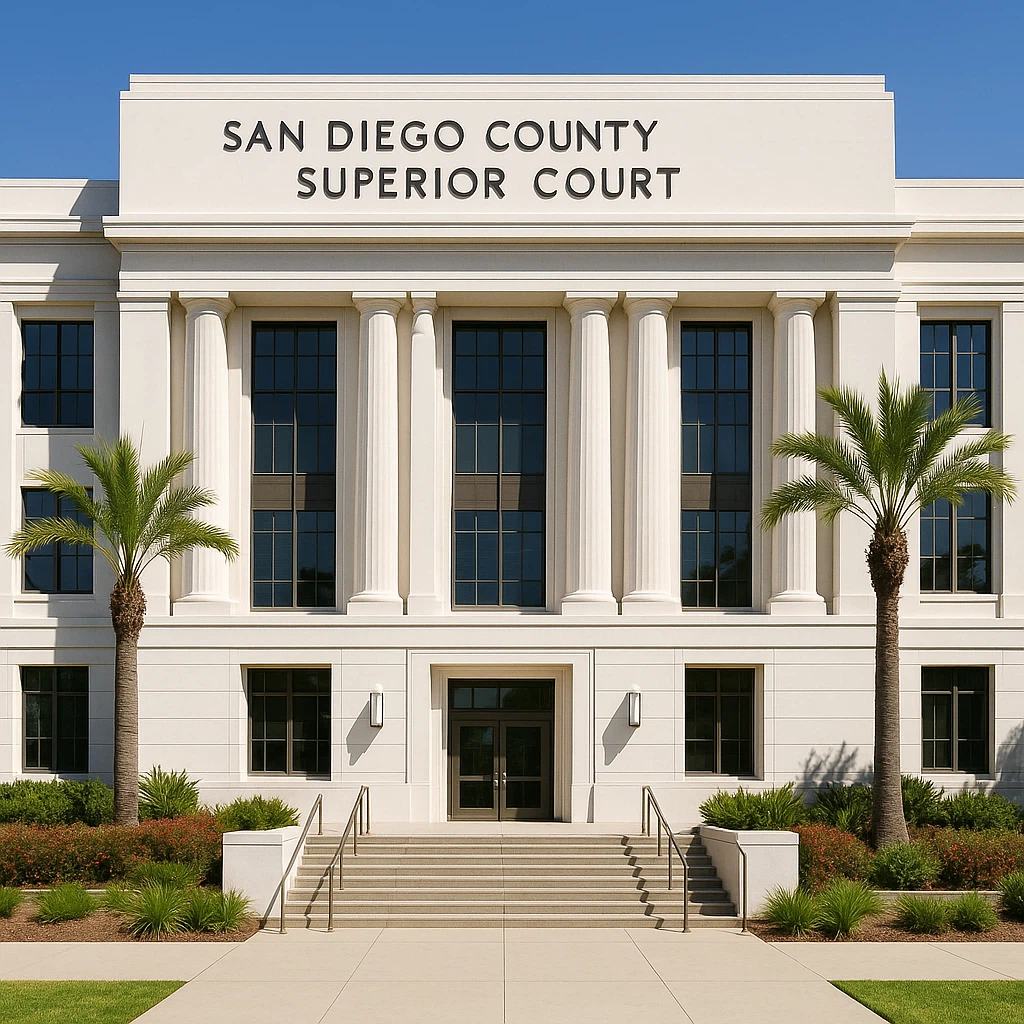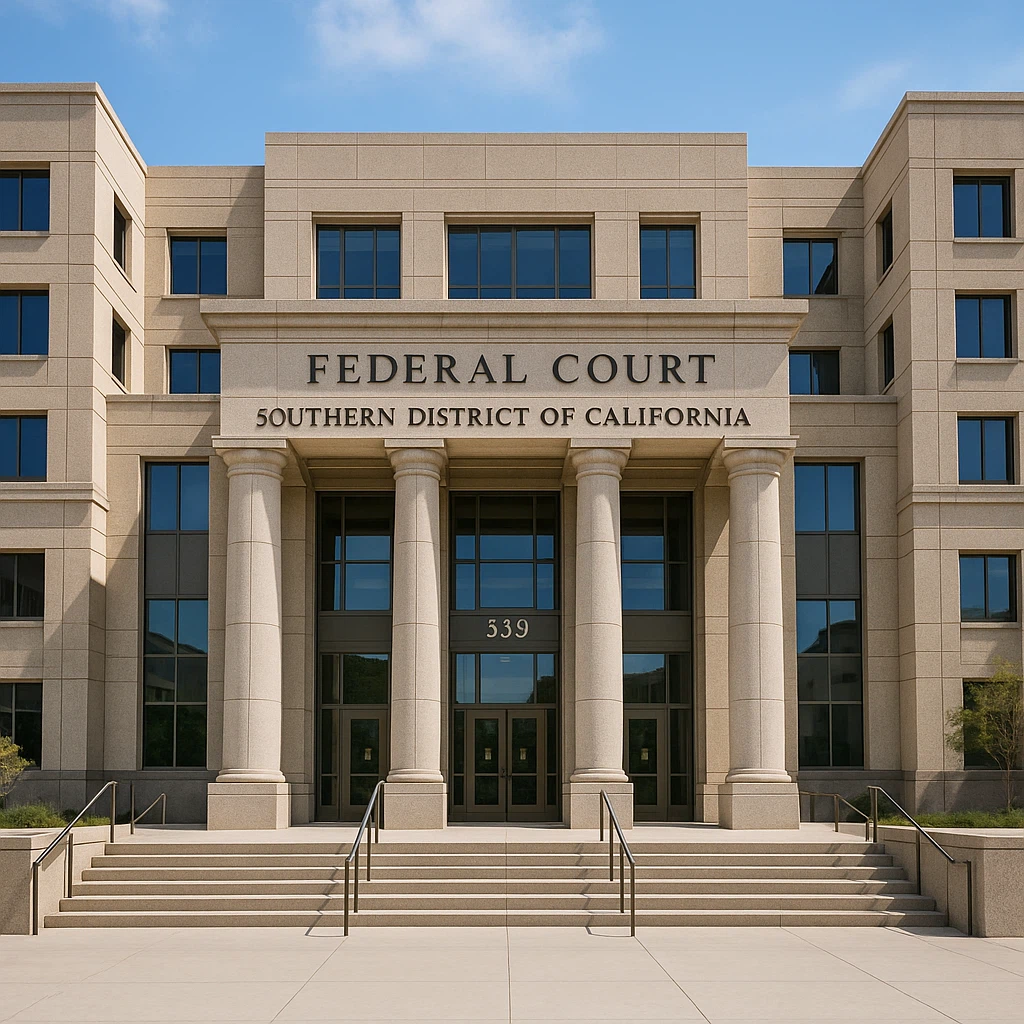Ready to fight for justice after being charged with a criminal offense?
San Diego Criminal Defense Lawyers
San Diego Criminal Defense Lawyer – McKenzie Scott | Expert Defense Attorneys in CA
If you’ve been charged with a crime in San Diego County – or anywhere across California – you need strong, experienced criminal defense lawyers on your side. An arrest or criminal conviction can be an overwhelming, stressful, and traumatic experience with life-altering consequences. At McKenzie Scott, we protect your rights with fierce litigation, smart strategy, and decades of courtroom success. Whether you’re under investigation, arrested, or facing sentencing, we fight aggressively for the best possible outcome.
As Seen On











Table of Contents
What Kinds of Criminal Charges We Handle in San Diego & California
With a deep understanding of both state and federal law, McKenzie Scott handles a wide range of criminal defense matters, including:
- Violent crimes: assault, battery, domestic violence, homicide
- Drug offenses: possession, trafficking, distribution, sale, conspiracy
- White-collar crimes: fraud, money laundering, embezzlement, trade secrets investigations
- Sex offenses: rape, molestation, Internet crimes, child pornography cases
- Federal criminal charges & investigations
- Juvenile offenses / underage charges
- Gun & weapons charges
- Appeals, habeas corpus, post-conviction relief
If you’ve been accused of a crime, that does not make you a criminal. You are innocent until proven guilty – beyond a reasonable doubt. McKenzie Scott’s San Diego criminal defense lawyers are available 24/7 to discuss your case. We will listen, provide answers to your questions, and ensure your rights are protected.
Why Choose McKenzie Scott – Your San Diego Criminal Defense Firm
- Local to San Diego, but equipped for anything throughout California & in federal courts nationwide: We know San Diego’s courts, local prosecutors, and how to navigate the California legal system. We have vigorously represented clients in federal courts in and outside California.
- Trial-ready attorneys: We develop an aggressive, precise legal strategy which includes preparing each case as though it’s going to trial (even if a plea ends up being the best path forward).
- Strategic early case work: From investigations to motions, from arraignment to sentencing – we work quickly and aggressively on the front end so you have options.
- Resourceful & client-focused: We bring together investigators, experts, and defense resources to build the strongest case possible. We explain the law in plain English and treat you with dignity.
- Proven results: We have secured dismissals, not guilty verdicts in state and federal court, reductions of serious charges, and even wins on appeal – all for clients like you.
Free San Diego Criminal Case Evaluation — Get Started Now
If you or someone you know is facing criminal charges, time matters. Contact McKenzie Scott for a free initial case evaluation (no obligation). Call us at (619) 794-0451 or complete a quick contact form. We serve clients facing criminal charges in San Diego County, the greater Southern California region, and accept criminal defense cases throughout California.


Highly Knowledgeable and Well Respected Attorney! Mr. Scott helped my family at a very scary time. His legal background, knowledge of the federal system and the local representatives gave my family a much needed peace of mind. Our circumstances required a person who had federal, criminal and military understanding, he fit all those categories and I highly recommend him.
The Best Exceptional Trial Lawyer in America… You both went beyond being professional skilled attorneys and you made me feel like you invested personally in me and treated me and my family as friends… You truly care about our family and what we are going through. Although both of you are fierce contender in the courtroom, your calm and humble manner, helps to put us at ease. Both of you are the best exceptional trial attorneys, and kind and gracious.
How Criminal Cases Work in San Diego & How We Help
- Investigation & Government/Police Contact: Law enforcement, local police departments, the sheriff, state or federal agents may contact you or begin investigating. We act quickly to ensure your rights are protected: reviewing search warrants, interacting on your behalf with law enforcement and prosecutors, questioning procedure, subpoenas, and evidence gathering.
- Arraignment & Bail: Facing a judge for the first time – what charges will be read, what bail conditions may be imposed, what your rights are. San Diego courts have particular practices we know well.
- Pretrial Motions, Strategy & Motions to Suppress: Before trial, we may file motions to exclude evidence, dismiss charges, or negotiate with prosecutors depending on your wishes and the specific needs of your case. Often, success here can determine how much pressure is put on you.
- Trial Preparation & Representation: If your case goes to trial, we assemble witnesses, experts, cross-examine, present your side.
- Sentencing, Appeals & Post-Conviction Relief: If a conviction occurs or plea is taken, we fight to mitigate the sentence. If there are legal errors, we pursue appeals or other avenues of relief (such as habeas corpus).
Criminal Case Victories at Trial
- Not guilty on 22 counts (federal trade secret theft case in the District of Utah)
- Not guilty (federal drug importation, Southern District of California)
- Dismissed mid-trial after the government rested its case (illegal entry)
- Trial conviction reversed on appeal (securities fraud)
- Trial conviction reversed on appeal, new trial granted (solicitation to murder federal charge)
- Not guilty verdict on all counts (federal health care fraud)
- Not guilty on all counts (securities fraud, wire fraud, mail fraud)
- Hung jury/mistrial (federal drug conspiracy)
Our Recent San Diego + California Criminal Defense Successes

San Diego County Superior Court
MSPC secured not-guilty verdicts and complete exoneration in a case in which an innocent man was accused of serious sexual offenses. MSPC’s thorough investigation revealed third-party witnesses and incontrovertible facts proving that the accused was factually innocent; after the District Attorney’s office refused to dismiss notwithstanding this exculpatory evidence, the jury acquitted in approximately one hour

Federal Court (Southern District of California)
MSPC secured a complete dismissal of an 80+ count indictment alleging various violations of federal law including an alleged conspiracy to commit healthcare fraud and an alleged conspiracy to manufacture and distribute controlled substances. MSPC’s aggressive motions practice resulted in the U.S. Attorney’s Office deciding to enter a pre-trial dismissal of all charges against our client just thirteen months after charging her with 83 federal crimes.

California Court of Appeal
MSPC secured a reversal of a criminal conviction on First Amendment grounds and remanding to trial court with instructions to dismiss.
Frequently Asked Questions – San Diego Criminal Defense
Yes. You do not have to accept a plea deal. In some cases, taking a plea might be the best course of action. However, some criminal defense attorneys unfortunately encourage their clients to take plea deals when fighting for a better result is entirely possible. Take our client, Travis, as an example. Travis was facing a 40-year drug trafficking sentence. His initial attorney told him to take a five-year plea deal. He hired McKenzie Scott, we fought, and he ended up being sentenced to probation and time served.
Criminal cases in San Diego can have varying timelines. Multiple factors can impact the length of a case – whether the charges are state or federal, the number and severity of the charges, the complexity of the circumstances surrounding the case, etc. We will work tirelessly to ensure that you receive the best possible outcome to your case in the shortest amount of time.
You have the right to remain silent (and you should do so). You have the right to an attorney. You have the right to be treated with respect and dignity during an arrest. You should contact McKenzie Scott’s criminal defense lawyers in San Diego as soon as possible to ensure your rights are protected.
Facing Charges in San Diego?
Contact our Criminal Defense Lawyers
You don’t have to face charges alone. Call (619) 794-0451 or complete a quick contact us form today for your free case evaluation. McKenzie Scott is here for you in San Diego, California – serving clients in all state and federal jurisdictions.


CRIMINAL DEFENSE CASES WE HANDLE
CLIENT REVIEWS / TESTIMONIALS
The information provided on this website is for informational purposes only; it is not intended to create an attorney-client relationship with those accessing the website and the firm is not intending to provide any individuals with legal advice as to any particular matter. Additionally, prior results achieved by the firm do not represent a guarantee or prediction of similar results in any other cases. The facts of each case are unique. This website may contain attorney advertising.
@ Copyright 2025 McKenzie Scott Civil Rights & Criminal Defense Lawyers. All Rights Reserved | Sitemap